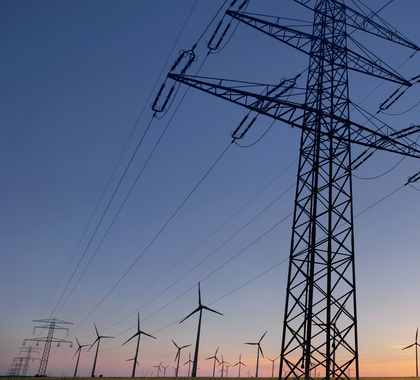The future of a proposed 780-mile transmission line that would carry as much as 4,000 megawatts of wind power from southwestern Kansas across northern Missouri and central Illinois into Indiana, where it would connect to an electric grid serving Northeastern states, remains in doubt even after ten years of regulatory, legislative, and legal challenges.
Landowners are fighting the use of eminent domain by the developers of the $2.3 billion Grain Belt Express power line to run the high-voltage line across their property.
Unlike interstate pipelines, over which the federal government has siting authority, transmission lines are under states’ jurisdictions. As a result, before the power line can be erected, all four Midwestern states it would cross will have to approve it.
Regulators Versus Legislators
In Missouri, some landowners have accepted Chicago-based renewable energy firm Invenergy’s offer for easements across their property for the power line. Others have not.
In March 2019, the Missouri Public Service Commission (MPSC) reversed itself, approving the power line it had previously rejected, based on its conclusion it satisfied the requirements of being a public utility.
The Missouri Farm Bureau, on behalf of its member landowners fighting Invenergy’s use of eminent domain to take their property, supported bills to prohibit the use of eminent domain to acquire easements for the project, which Missouri’s legislature took up shortly after MPSC approved the power line.
In the Missouri House, the legislation passed out of a committee chaired by state Rep. Dean Plocher (R-Des Peres).
“We’re asking our Missouri farmers and rural areas to give up their land and their rights so that people further east can save on their energy bills,” Plocher said during the debate over the bill. “I don’t think that’s good for Missourians.”
Missouri’s House adopted the bill, which was then halted in the Senate by a filibuster. Identical bills have been pre-filed in the House and Senate for the 2020 legislative session.
Legal Challenges
The Grain Belt Express had overcome one hurdle to construction in Missouri with the dismissal of a lawsuit to overturn MPSC’s approval, filed by the Missouri Landowners Association (MLA), which represents hundreds of property owners along the power line’s proposed route through eight counties.
MLA argued the power line doesn’t qualify as a public utility because it does not offer “indiscriminate service” on a widespread basis as required under Missouri’s Public Service Commission Act.
In a setback for MLA, a three-judge panel of the Missouri Court of Appeals unanimously affirmed MPSC’s power line approval in a December 2019 ruling.
The Grain Belt Express still faces challenges. In an Illinois lawsuit challenging the power line, the state appellate court sent approval of the Grain Belt Express back to state regulators, affirming a lower court’s ruling that the Illinois Commerce Commission had wrongly approved the project under an expedited review process for public utilities.
In addition, although Missouri’s Supreme Court ruled county approvals aren’t a prerequisite for MPSC approving power line construction, Invenergy must secure approvals from each of the eight counties it would pass through, to get permission to cross roads in those counties.
Wind Industry Power
There is no legitimate need for the electricity the Grain Belt Express is supposed to deliver, says physicist John Droz, founder of the Alliance for Wise Energy Decisions.
“What really needs to be contested is whether there is a true public need for this wind energy,” said Droz. “There is considerable evidence the answer is no.”
Industrial wind developers wield far too much influence over public policy, says Craig Rucker, president of the Committee for a Constructive Tomorrow (CFACT).
“Although it’s encouraging to see people stand up to an industry that has gamed the system while defacing the countryside with gigantic turbines and unwanted power lines, sadly ‘Big Wind’ just got another extension on its decades-old federal subsidy and continues to throw its weight around at the state and local level,” Rucker said.
Bonner R. Cohen, Ph.D. ([email protected]) is a senior fellow at the National Center for Public Policy Research and a senior policy analyst with CFACT.





